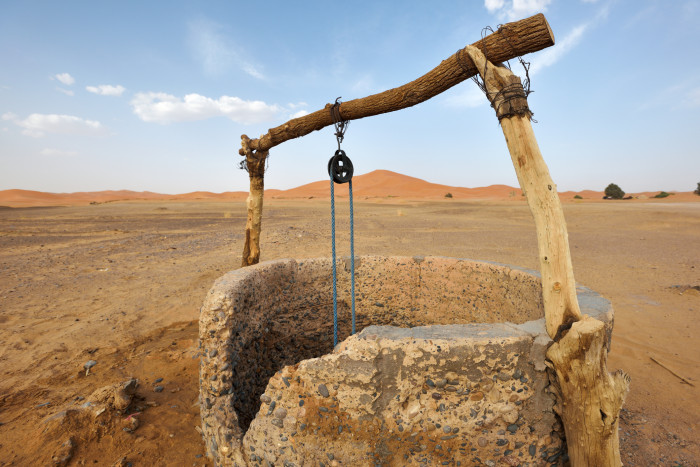
The 22nd of March is World Water Day, a United Nations awareness day that focuses on the importance of freshwater. This year, the focus is on groundwater, an invisible resource essential to life.
Groundwater is widely used in agriculture around the world. Around 70% of all groundwater is used for agriculture production, mainly for irrigation. Groundwater in many countries represents the only reliable water source, providing water on demand while being largely unaffected by seasonal surface hydrological variation. However, intensive groundwater pumping and agricultural pollution (from excess salts from applied irrigation water to fertilizers and pesticides) have led to the depletion and contamination of the resource in many regions. Today, groundwater use beyond natural recharge results in significant negative economic and environmental impacts and, consequently, less sustainable agricultural production.
To tackle this challenge, AFC is supporting farmers and agricultural producers around the world in the sustainable management of this critical resource. To celebrate World Water Day, we want to highlight our activities in groundwater management in three different projects:
Fostering groundwater protection in Algeria
The Agriculture Sector Support Programme (PASA), co-financed by the European Commission and the BMZ, aims to support the improvement of date, chili, and potato cultivation in the south of Algeria. These agricultural systems, based on the use of fossil water, are profitable but the high productivity has a significant environmental cost with overexploitation of limited groundwater resources and contamination by salts and agrochemical residues in the soil and water that pollute the water table. Following field research on relevant environmental issues, our AFC team will develop capacity development activities and support the planning of collaborative projects, integrating preventing and protection measures for groundwater resources, among others :
- Rational use of agrochemicals
- Application of organic fertilizers
- Maintenance and improvement of drainage and irrigation systems
- Limit the stagnation of water on the surface
- Promotion of the recycling of agricultural wastewater
- Encouraging the use of drip irrigation
- Measures to limit the impact of increasing water salinity
To learn more about the project: https://www.afci.de/projects/improvement-date-chilli-and-potato-cultivation-provinces-biskra-and-el-oued-algeria
Improving access to groundwater resources for market gardening in North Benin
The farmers in the North of Benin are experiencing the impacts of climate change with an increasingly disrupted rainy season and an expanding dry season. Throughout the dry season, due to the lack of surface water, most agricultural productions are interrupted. This year, and after repeated requests from the communities, our AFC team has been mobilizing groundwater through boreholes and solar pumps, in three different locations. Access to groundwater will allow market gardening during the dry season. The drilling of productive boreholes in north Benin is considered costly, therefore almost unattainable for the local communities. AFC will ensure that pumping will not harm other groundwater uses.
To read more about the project: https://www.afci.de/projects/fonds-dinvestissement-agriculture-phase-iv
Introducing water harvesting to ensure the sustainability of water supply for Ugandan farmers
Over 90% of the population in Northern Uganda lives from agriculture. Given the growing population and advancing climate change, the pressure on water resources for agricultural production has increased significantly. While irrigated agriculture is still relatively underdeveloped, it can be used to better regulate access to water, make harvests safer, and increase yields as well as income. At the same time, integrated water resources management is necessary to ensure the sustainability of water supply in the face of declining overall availability. AFC experts support the dissemination of adapted technologies for small-scale and micro-irrigation to local farmers to increase water efficiency and energy saving. The farmers will be advised on water harvesting techniques, consisting in the collection and storage of rain. This method presents a low-cost alternative to irrigation-based on groundwater. Water harvesting increases water availability and the conservation of groundwater resources. We will also ensure the development of financial strategies to enable small-scale farmers to acquire micro-irrigation equipment.
To learn more about the project: https://www.afci.de/projects/promoting-rural-development-northern-uganda-prudev-field-action-5-water-agricultural
